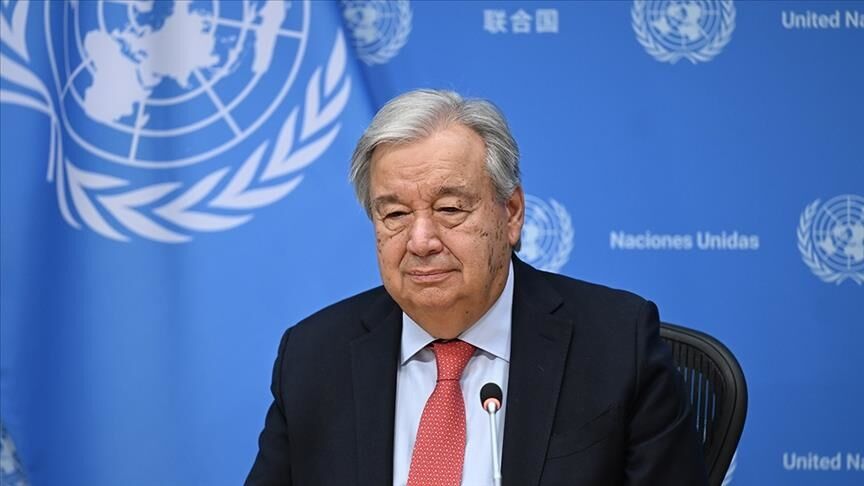UN Secretary-General: Situation in Gaza is dire; ceasefire not enough.
“It is essential that this ceasefire leads to a solution, and that solution can only be achieved if both Palestinians and Israelis have a state in which they can enjoy their rights,” UN Secretary-General Antonio Guterres told reporters on Monday.
The UN chief described the situation in Gaza as “horrific,” saying the territory had witnessed unprecedented death and destruction in recent times and that basic human dignity for the people of Gaza had been undermined.
The top UN official stressed that the idea of 5 million people living without rights in their own land was against humanity and international law.
Guterres announced plans to hold a conference on the two-state solution in July and expressed hope that both sides could overcome the obstacles to achieving a ceasefire.
The UN chief stressed that more action was needed, saying, “We need a permanent ceasefire in Gaza.”
UN agencies such as OCHA, UNDP, UNFPA, UNICEF, UNOPS, UNRWA, WFP, and WHO warned of fuel shortages in Gaza in a joint statement provided to IRNA.
The agencies’ statement said, “Fuel is the mainstay of survival in Gaza. Fuel powers hospitals, water systems, health networks, ambulances, and every aspect of humanitarian operations. Fuel is essential for the movement of the fleet used to transport essential goods across the Gaza Strip and for the operation of a network of bakeries that produce fresh bread for the affected population. Without fuel, these lifelines for 2.1 million people will be cut off.”
“Yesterday, a UN team managed to bring in about 75,000 liters of fuel from Israel to the Gaza Strip. This is the first such shipment in 130 days,” UN spokesman Stephane Dujarric said on Thursday local time, citing the Office for the Coordination of Humanitarian Affairs (OCHA).
However, the UN spokesman warned that “the quantity imported is not enough to cover even one day’s energy needs.”
“Fuel remains limited, and if more is not delivered to the Gaza Strip immediately, services will be disrupted,” Dujarric stressed. He added that the UN and its partners need “hundreds of thousands of liters of fuel per day to continue essential, life-sustaining operations.”
The senior UN official said that a humanitarian partner in Gaza reported this week that fuel shortages could cut off clean drinking water for some 44,000 children within days, noting that this would also “further increase” the risk of waterborne diseases such as cholera, diarrhea, and dysentery.
With the support of the United States, Israel launched a devastating war against the residents of the Gaza Strip from October 7, 2023 to January 19, 2025, that left widespread destruction and many human casualties but did not achieve its stated goals of destroying the Hamas movement and freeing Zionist prisoners. On January 19, 2025 (30 Di 1403), based on an agreement between Hamas and the Zionist regime, a ceasefire was established in the Gaza Strip, after which the Israeli army resumed its military aggression against the Gaza Strip on the morning of Tuesday, March 18, in violation of the ceasefire provisions.
A new round of Gaza ceasefire negotiations resumed on Sunday, July 5, ahead of the meeting between Benjamin Netanyahu and US President Donald Trump at the White House on Monday.

